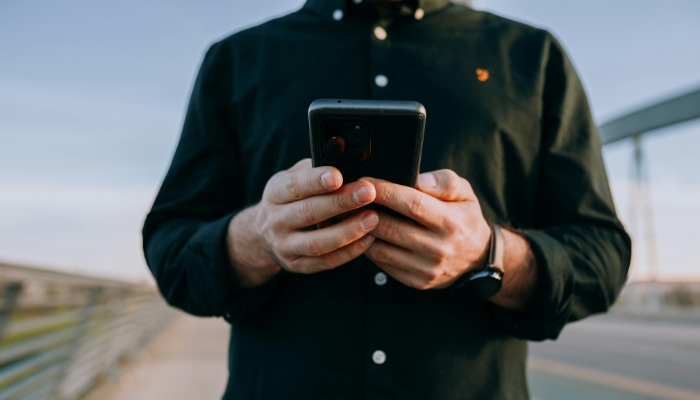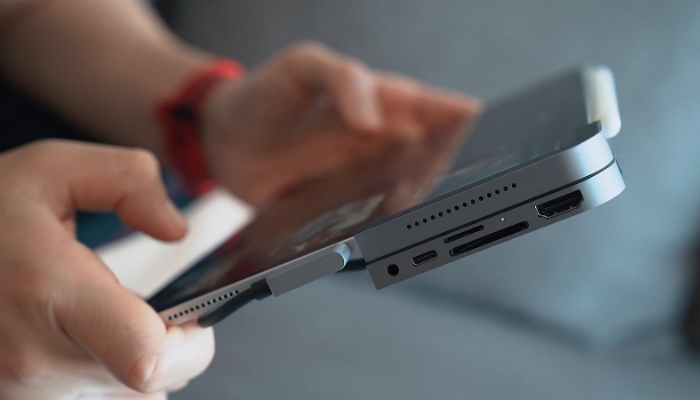
Just as the Social Security number is a unique identifier for every American citizen, the International Mobile Equipment Identity (IMEI) number serves the same purpose for your smartphone. You’ve likely come across this term in the settings of your phone or on its box, but have you ever wondered about its importance, whether should imei be kept private, and the possibilities of Tracking iPhone with IMEI?
To find out if your IMEI is locked to a network, contact your service provider or try a SIM card from a different carrier. This information is important for users wanting to switch networks or use their phone abroad.
IMEI, being a unique code, holds significant information about your device and is crucial in various scenarios like blocking lost or stolen phones. But is it safe to have this number out in the open? Or, like your social security number, should you be keeping it under wraps? Let’s explore further into this topic “should imei be kept private” and unveil the pros and cons of keeping your IMEI private.
Understanding the Role of IMEI
You’re probably wondering, what exactly is the role of IMEI in your mobile device? Well, let’s get into it.
IMEI, or International Mobile Equipment Identity, is a unique identifier that’s paired with every mobile device. It’s like the fingerprint of your phone, distinct and unique to only your device.
Without IMEI, your device wouldn’t be able to connect to the cellular network. It’s the IMEI that your service provider uses to identify your device on their network. It’s how they monitor your data usage, enable or disable services, and manage your account.
Law enforcement uses the IMEI number to track down your device in cases of theft or loss, but the role of IMEI extends beyond just your service provider. Additionally, if you report your phone as stolen, your service provider can blacklist the IMEI, rendering the device useless on any cellular network.
The Importance of IMEI in Mobile Security

IMEI, or the 15-digit IMEI number, is a unique identifier for every mobile device. It plays a crucial role in enhancing mobile security. When a phone gets lost or stolen, the IMEI code helps in tracking it down. Moreover, it’s a key element in combating network fraud and ensuring secure cellular services.
Role of IMEI in Tracking Lost or Stolen Phones
When a phone is lost or stolen, the IMEI number becomes a powerful tool for recovery. Law enforcement agencies and mobile carriers use this number to track the location of the device. Here’s how it works:
- Reporting the Loss: The original owner reports the lost or stolen phone to the carrier or police, providing the 15-digit IMEI code.
- Tracking the Device: The cellular network device uses the IMEI to locate the phone. This number is unique to each single device, making it easier to find the specific phone.
- Blocking the Phone: If recovery seems impossible, the carrier can block phones using the IMEI. This makes the phone impossible to use, even with a new SIM card.
IMEI in Network Security and Fraud Prevention
The IMEI number also plays a vital role in network security and preventing fraud. Here’s how:
- Identifying Fake Phones: Counterfeit phones often have duplicated or no IMEI numbers. Networks can detect and block these fake phones.
- Preventing Fraud: Fraudsters often change IMEI numbers to mask their activities. However, active tracking of original IMEI numbers helps in identifying and stopping these fraudulent activities.
- Secure Phones: Phones with a valid IMEI are considered secure phones. They meet the safety standards set by phone companies and cellular carriers.
In conclusion, the IMEI number is more than just a piece of equipment identifier; it’s a critical component in maintaining the integrity and security of cellular services. Whether it’s for personal security in the case of lost or stolen phones or for broader network security, the IMEI’s role is indispensable.
Dangers of Public IMEI Exposure
While understanding the role of IMEI highlights its importance, it’s equally critical to recognize the potential dangers associated with its public exposure. This unique set of numbers, your cell phone IDs, are essentially your mobile phone’s digital fingerprints. If they fall into the wrong hands, it can lead to severe privacy issues.
Imagine a world where your IMEI is public knowledge. Unscrupulous individuals could track your every move, right down to the exact location of your mobile phone. They could also access your personal data, intercept your calls and messages, and even clone your phone.
Your phone’s IMEI, once exposed, can be used to create a detailed profile about you. Your habits, routines, the people you communicate with, and places you frequent could all be uncovered. It’s a scary prospect, isn’t it?
That’s why, it’s crucial to keep your IMEI private. Guard it as you’d your social security number or bank details. Don’t share it unless absolutely necessary and with trusted entities only. Because once your digital fingerprints are out there, getting them back can be near impossible.
Legal and Ethical Aspects of IMEI Privacy

The International Mobile Equipment Identity (IMEI) number is a unique identifier for mobile phones, and its privacy and usage are governed by various global regulations and ethical considerations. Understanding these legal frameworks and ethical norms is crucial for both mobile carriers and users.
Global Regulations on IMEI Privacy and Usage
Different countries have distinct laws and regulations regarding the use and privacy of IMEI numbers:
- Data Protection Laws: In many regions, IMEI numbers are considered personal data. Laws like the GDPR in Europe mandate strict guidelines on how this data can be collected, stored, and used.
- Regulation of Mobile Devices: Countries like India have regulations requiring mobile carriers and phone companies to maintain records of IMEI numbers. This helps in tracking counterfeit phones and ensuring network security.
- IMEI Database Management: Some countries have centralized databases managed by authoritative parties or law enforcement agencies. These databases help in tracking lost or stolen phones and blocking fake phones.
- Compliance with International Standards: There are international standards set by bodies like the GSMA, which recommend best practices for IMEI usage and privacy.
Ethical Considerations in Handling IMEI Data
Alongside legal aspects, there are several ethical considerations:
- User Privacy: Companies must ensure that the collection and use of IMEI data respect user privacy. This includes obtaining consent where necessary and ensuring data is used only for legitimate purposes.
- Data Security: Protecting IMEI data from unauthorized access is crucial. Breaches can lead to privacy violations and potential misuse of the data.
- Transparency: Users should be informed about how their IMEI data is being used. Transparency builds trust and ensures ethical compliance.
- Avoiding Discrimination: There should be safeguards to ensure that IMEI data is not used for discriminatory purposes, such as tracking or profiling individuals without consent.
In conclusion, the legal and ethical management of IMEI data is a balancing act. It involves adhering to global regulations and respecting the privacy and rights of individuals. As technology evolves, so do the challenges associated with IMEI privacy.
It’s essential for mobile carriers, phone companies, and regulatory bodies to continuously update their policies and practices to ensure they are protecting this critical data effectively and ethically.
Benefits of Keeping IMEI Private

Keeping your IMEI private not only protects you from potential threats, but it also offers numerous benefits that are worth considering. It’s your cell phone’s unique identifier, similar to how your fingerprint is unique to you. When kept private, it safeguards your android device from misuse and aids in its recovery if stolen or lost.
By keeping your IMEI private, you’re preventing unauthorized users from accessing your mobile network. It’s like a key that, in the wrong hands, can unlock your personal data. Privacy also thwarts location tracking, keeping your whereabouts unknown from potential stalkers or malicious hackers.
Moreover, your IMEI is crucial in establishing you as the rightful owner of your device. If your phone is ever lost or stolen, telecommunication companies use your IMEI to verify your ownership claim. They can also block the device from being used on any network, rendering it useless for thieves.
How to Protect Your IMEI?
To protect your IMEI, it’s crucial to keep it private and only share it when absolutely necessary. Your IMEI is a unique identifier for your phone, and if it gets into the wrong hands, they could potentially misuse your device or your cellular network carrier account.
So, how do you protect your IMEI? First, avoid public Wi-Fi networks and instead use a private network. Public Wi-Fi networks are often unsecured, making it easier for hackers to access your information. A private network, on the other hand, is more secure and can help keep your IMEI safe.
Second, only provide your IMEI to your cellular network carrier or a trusted professional if needed for service. Be wary of anyone else who asks for it. If you have a dual IMEI phone, this applies to both numbers.
Lastly, keep your phone’s software up-to-date. Software updates often include security patches that can protect your phone and your IMEI. By following these steps, you can keep your IMEI secure and reduce the risk of it being used inappropriately.
Conclusion
So, you’ve learned should imei be kept private, the dangers of public exposure, how to protect it, and the relevance of knowing if your phone is IMEI Locked to Network. Take these lessons seriously! You don’t want your phone cloned or used for illegal activities.
Remember, your IMEI is your phone’s unique identity and it’s your responsibility to keep it under wraps. Don’t let a moment’s negligence lead to serious consequences. Stay safe, stay smart, and keep your IMEI private.
FAQs on Should IMEI Be Kept Private
How can I protect my IMEI number from being misused?
To protect your IMEI number, avoid sharing it unnecessarily, especially online or with untrusted entities. Use security features like passwords and biometric locks on your phone to prevent unauthorized access. Regularly check for any unusual activity on your device that might indicate tampering. If you sell your phone, ensure to perform a factory reset to remove your data and disconnect it from your accounts.
What should I do if I suspect my IMEI number is compromised?
If you suspect your IMEI number is compromised, immediately inform your mobile carrier. They can monitor for unusual activity or block the phone from their network if necessary. Additionally, file a report with local law enforcement, especially if you suspect your phone is stolen. Keep an eye on your phone bills for any unfamiliar charges, which could indicate misuse.
Can IMEI numbers be changed or masked for privacy?
Changing or masking an IMEI number is generally illegal and unethical. The IMEI is a crucial security feature designed to uniquely identify a mobile device. Tampering with it can lead to legal consequences and potentially disrupt network integrity. Instead of changing it, focus on keeping your IMEI number secure and private.